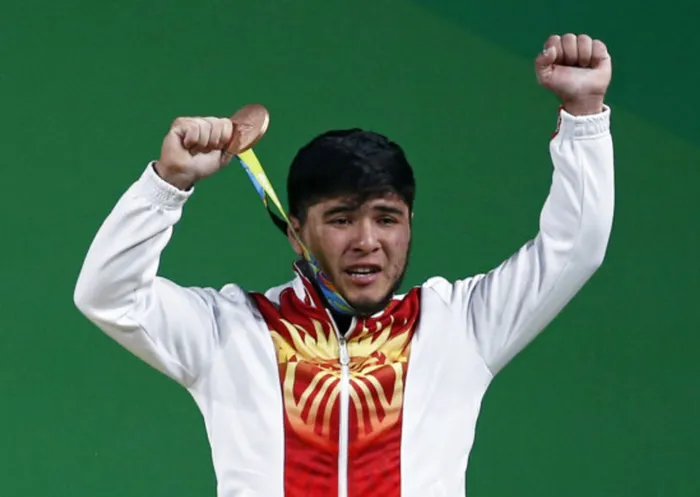Doping cases pile up as Olympics enters final stretch

Bronze medalist Izzat Artykov of Kyrgyzstan celebrating on the podium. Photo: LARRY W. SMITH Bronze medalist Izzat Artykov of Kyrgyzstan celebrating on the podium. Photo: LARRY W. SMITH
Rio de Janeiro - Bronze medallist weightlifter Izzat Artykov on Thursday became the first athlete to be stripped of a Rio Olympics medal, testing positive for drugs as doping moved into the spotlight with the Games entering the final stretch.
The International Olympic Committee (IOC) had executed the most extensive pre-Games drugs testing plan while also re-testing hundreds of samples from the previous two Olympics in London and Beijing in an effort to root out cheats.
Despite discovering 98 positive samples in the re-tests and banning those athletes from Rio and dozens more in targeted pre-competition tests, several more athletes were caught at the Games.
Artykov, from Kyrgyzstan, tested positive for strychnine after placing third in the men's 69kg category, with the international federation and the IOC in charge of redistributing his medal.
Moldovan paddler Serghei Tarnovschi, who won bronze in the canoe sprint, was provisionally suspended from the Olympics and will miss out on the C2M 1000 metres where he was set to compete with his brother Oleg.
The 19-year-old Tarnovschi was told on Thursday he had failed a pre-Games test.
The International Canoe Federation (ICF) told Reuters the status of Tarnovschi's medal would be determined by an IOC-led hearing later in the week.
Things, however, were far worse for medal hopeful Indian wrestler Narsingh Yadav whose chances of competing at the Games after being cleared of a doping offence back home were dashed by the Court of Arbitration for Sport.
Yadav, a bronze medallist in the 74kg category at last year's world championships, was handed the maximum four-year doping ban after the World Anti-Doping Agency (WADA) won its appeal against his earlier exoneration.
An Indian anti-doping disciplinary panel had ruled earlier this month the wrestler was a victim of “sabotage”, and cleared him to compete in Rio. Freestyle wrestling starts on Friday.
The freestyle wrestler had claimed his supplements and water had been sabotaged and lodged a police complaint against a junior wrestler, accusing him of contaminating his food at the Sports Authority of India training centre in Sonepat.
WADA, however, filed an urgent application before CAS to challenge the decision of NADA India to exonerate Yadav.
There was more bad news for the host country, already struggling with a series of Games problems, when Brazilian road cyclist Kleber Da Silva Ramos disqualified for the blood-booster EPO.
He was joined on the sidelines by Chinese swimmer Chen Xinyi, ruled out after a positive test for the diuretic hydrochlorothiazide.
Doping had overshadowed the run-up to the first Olympics in South America with some 100 Russian competitors, including virtually the entire track and field team, barred from the Games over what WADA said was a state-backed systematic doping programme that stretched back for years.
The IOC will conduct about 6,000 urine and blood tests during the Aug. 5-21 Games, including testing the top five finishers in every competition.
Reuters